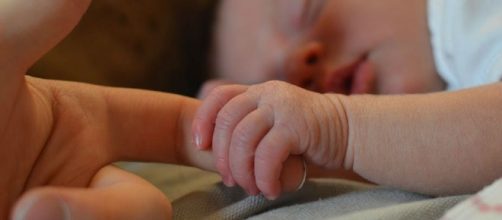British Judge Nicholas Francis has ordered that 11-month-old Charlie Gard is to be moved to hospice and die peacefully. Judge Francis has also ordered that Charlie's life support is to be turned off within hours of being moved to hospice care. The order came on Thursday when Charlie's parents and Great Ormond Street Hospital could not make a decision on what end of life care he should receive or where his final hours were to be spent. Charlie will be moved to an unknown location due to all the conservatory surrounding the case.
Chris Gard and Connie Yates have done everything possible for their son.
Charlie was diagnosed at only eight weeks old with mitochondrial DNA depletion syndrome a rare genetic disorder and has been the center a life and death case that has gained international attention. The couple has endured long courts battles not only to keep Charlie's life support going but also trying to seek experimental treatment in the United States for his condition. The baby is the 16th person in the world to have the RR2B strain of the disorder.
Court
Charlie's parents on Monday gave up their four-month court battle after seeing new test results that had been ordered by Dr. Michio Hirano, Professor of Neurology at Columbia University, an expert in mitochondrial DNA depletion syndrome and nucleoside therapy.
Upon reviewing the results the couple decided to withdraw all requests to keep Charlie alive and withdrew their application to come to the United States for treatment. They had also asked the court on Tuesday to allow their son to go home with them in his final hours. Great Ormond objected to Charlie's parents and even tried denying hospice care for the infant who won't live to see his first birthday next week.
Charlie has been a patient at Great Ormond Hospital for the last nine months of his life.
'We are sorry we couldn't save you': #CharlieGard's parents' moving statement as they prepare to say goodbye to him https://t.co/8hF8oUBNdP pic.twitter.com/gAy2FniNpd
— ITV News (@itvnews) July 24, 2017
Mitochondrial DNA depletion syndrome
Mitochondrial DNA depletion syndrome is a hereditary condition that both parents have to carry the gene in order to pass it down to their children.
The syndrome is usually diagnosed in infancy or in adolescents and people who have the condition do not live to adulthood. MDDS denies energy needed for muscles and organs to function properly leading them to stop working. It causes the limbs to stop working and then affects the lungs and brain leaving the patient unable to move, unable to breathe or eat and they eventually die. There is no cure for MDDS, experiential treatment is the only possible option with no guarantee that it will help people suffering from the disorder.
In Charlie's short life he has brought attention to many issues when it comes to medical care for a child. Who has a right to decide what is in the best interest of a child, is it the parents, doctors or court's decision to make that choice.
The case has also brought up questions on life support and should a patient or family be allowed to move a patient where they want to be or forced to stay in a hospital. Many of these questions and controversies will continue even after Charlie is gone.


